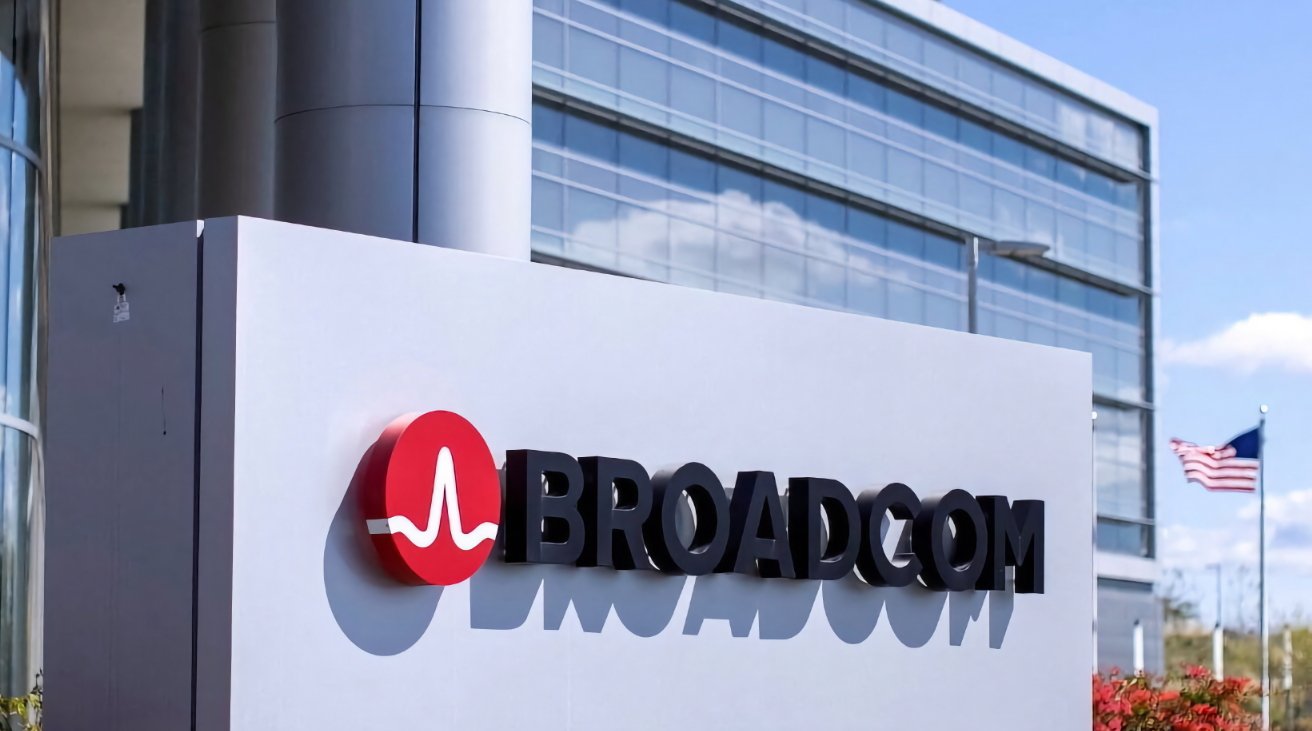Apple rumored to ditch Broadcom Wi-Fi for own design in iPhone 17
The iPhone 17 and other late 2025 Apple devices will feature the company's own Wi-Fi 7 chips as part of a longterm move away from third-party suppliers.

Broadcom offices -- image credit: Broadcom
It's long been documented that Apple is working to replace Qualcomm's 5G modems with its own design, but now a new report says it's doing the same with Wi-Fi. Previously, it was rumored that Apple was aiming to drop Broadcom's Wi-Fi processors, but now analyst Ming-Chi Kuo says it will happen with the iPhone 17.
Broadcom currently supplies over 300 million Wi-Fi+BT chips (hereafter referred to as Wi-Fi chips) per year to Apple. However, Apple will rapidly reduce its reliance on Broadcom. With new products in 2H25 (e.g., iPhone 17), Apple plans to use its own Wi-Fi chips, which will be
-- (Ming-Chi Kuo) (@mingchikuo)
Unusually, Kuo has only tweeted this news instead of also preparing a more detailed blog post. Partly because of that, it's not clear whether this news is Kuo's supposition, or is based on information from his industry sources.
The full tweet, though, does continue with a little more detail. As well as saying the iPhone 17 will get the Apple-designed Wi-Fi chips in 2025, Kuo says the processors will be Wi-Fi 7.
Kuo also says that the chips will be made by TSMC with its N7 or 7-nanometer process.
What's more, Apple is reportedly confident enough in its Wi-Fi 7 design that it "expects to move nearly all products to in-house Wi-Fi chips within about three years." Kuo does not explain why some products will not get Apple-designed Wi-Fi chips.
It won't be, for instance, smaller devices like the Apple Watch, whose chassis would presumably might require a different design to Wi-Fi chips in the iPhone or iPad. That's because Apple has been using its own modem in that since 2019's Apple Watch Series 3.
Whatever devices Apple uses its own modems for, though, Kuo makes the obvious point that it will reduce costs. It will also, he says, "enhance Apple's ecosystem integration advantages."
Currently Apple uses Wi-Fi chips from Broadcom. From 2016 to 2023, the two firms were embroiled in a Wi-Fi patent dispute with Caltech.
Rumor Score: Possible
Read on AppleInsider

Comments
Power efficiency and reliable data connections are biggest things people appreciate. It's not bandwidth. They don't need to compete on bandwidth. It's power efficiency and continuous data connections. It's more important to a reliable signal than to have the fastest data connection. I hope these two features are what they think are their advantages for bringing wireless chips in-house.
On a related note, Apple seems to have re-upped their investment in GlobalStar, even has become a minority owner, and that is one of the last great additions to phones. The ability to always have a data connection is a big feature. If they can roll out satellite networking for all their machines, it would be awesome.
There are still a lot of IoT devices out there that only work on 2.4 GHz. I am fortunate to have had the opportunity to install hardwired Ethernet with PoE throughout my house. For what I do and for where my bottlenecks exist, even 1 Gbps is perfectly fine. No interference, other than the normal Ethernet collision detection, but my network utilization is always very low outside of backups I run in the wee hours of the morning. But I still have 50 WiFi devices and none of them support the latest WiFi standard. About one-half are 2.4 GHz only.
It would be great if I could replace all of my 2.4 GHz devices, but that's not possible even if I throw money at the problem. I was elated to find out that my new Ecobee thermostat supports 5 GHz WiFi. Woo hoo. Maybe by 2028 there will be a critical mass of WiFi 7 devices available, but by then WiFi 7 will be eating the dust from whatever WiFi standard is at the top of the heap at that time. I suppose the good news is that Apple hasn't been trying to keep up with the pace of the availability of new standards. Apple's fairly slow pace of adoption doesn't affect me at all. Heck, the Apple Watch Ultra 2, even the newest black one, is still sporting WiFi 4. At least the newer WiFi standards are backward compatible. Your old devices and new devices designed around older WiFi support will still work, but you'll miss out on some of the benefits of the newer standards.
Apple, please don't do it "fast". Do it right.